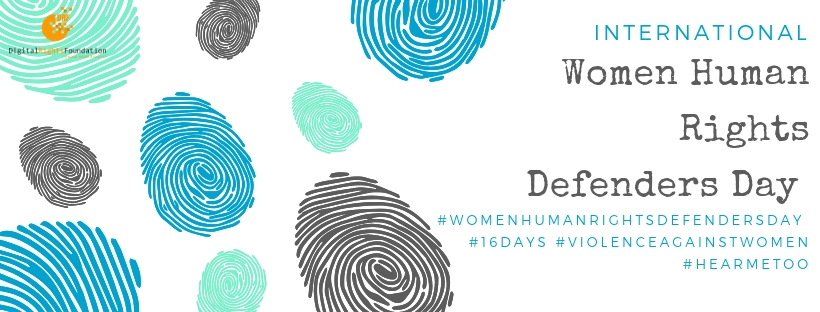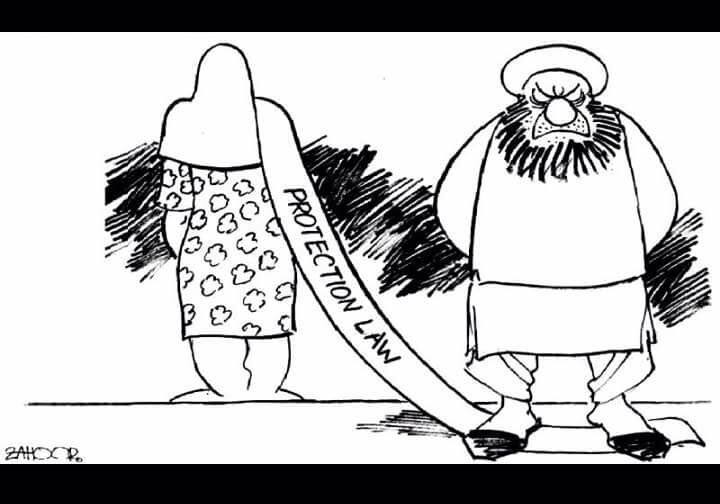November 29, 2018 - Comments Off on Shrinking Spaces for Women Human Rights Defenders
Shrinking Spaces for Women Human Rights Defenders
Women and girls, in every corner of the world, are struggling for their rights or for the rights of the communities they live in. Women Human Rights Defenders across the world are not only discriminated against because of their line of work but also due to their gender. They defend the rights of every human being including women’s rights and the rights related to gender and sexuality and the work they do often puts their physical and cyber safety at risk.
29th November marks the International Women Human Rights Defenders (WHRDs) Day, which is celebrated across the world to honor the courage and resilience women human rights defenders have. WHRDs are comparatively higher at risk than their male counterparts because of the restrictions imposed on them by society due to their gender. They are often labelled as ‘immoral’ women without familial values and morals, and are subjected to reputational damage.
WHRDs working on specific women issues like sexual and reproductive health rights face greater hostility. They are considered to be the ones who bring disgrace to the family due to their sensitive line of work. It is essential that WHRDs get protection and support from their peers, families and the state.
Online and offline spaces are correlated and the consequences individuals face in online spaces can also lead to repercussions in offline spaces which is why it is essential to know what the law is. Other than the challenges and risks from their communities, WHRDs are also vulnerable in digital spaces. They are harassed, exploited and blackmailed through different online platforms especially with the evolution of social media. The Prevention of Electronic Crimes Act (PECA) was passed in 2016 which focused on online violence. The law was specifically introduced to protect women in online spaces. Any activity in which individuals are intimidated and blackmailed through computer technology and social networking sites would constitute as cyber harassment. The cybercrime law clearly states that using someone’s name, ID and pictures without consent can potentially lead to 3 years of imprisonment or five million fine.
It is important for WHRD’s to have awareness of strong digital security measures and privacy tools on their devices and laptops. Despite the sensitivity of the work they do, some WHRDs tremendously lack online safety awareness, so much that some WHRDs do not know about the ways of securing their email accounts. Digital Rights Foundation is an organisation which works closely with WHRDs to raise awareness of the tools and measures that they can employ to work efficiently and securely, in both online and offline spaces. During one such workshop, I learnt that passwords must be a mix of of alphanumeric characters and symbols. I also learned that that sharing passwords via applications and platforms that are not encrypted is not safe and that one should avoid sharing personal photos, contacts and their daily routine schedule with any new contacts that one adds.
In case you encounter cyber harassment you can get in touch with DRF’s cyber harassment helpline 0800-39393 which is a toll free number. The helpline provides three basic services which are digital security assistance, psychological help and legal aid. The helpline functions from Monday till Sunday, 9:00 am till 5:30 pm. You can also reach out to the helpline on [email protected] .
Author: Sidra Humayun


